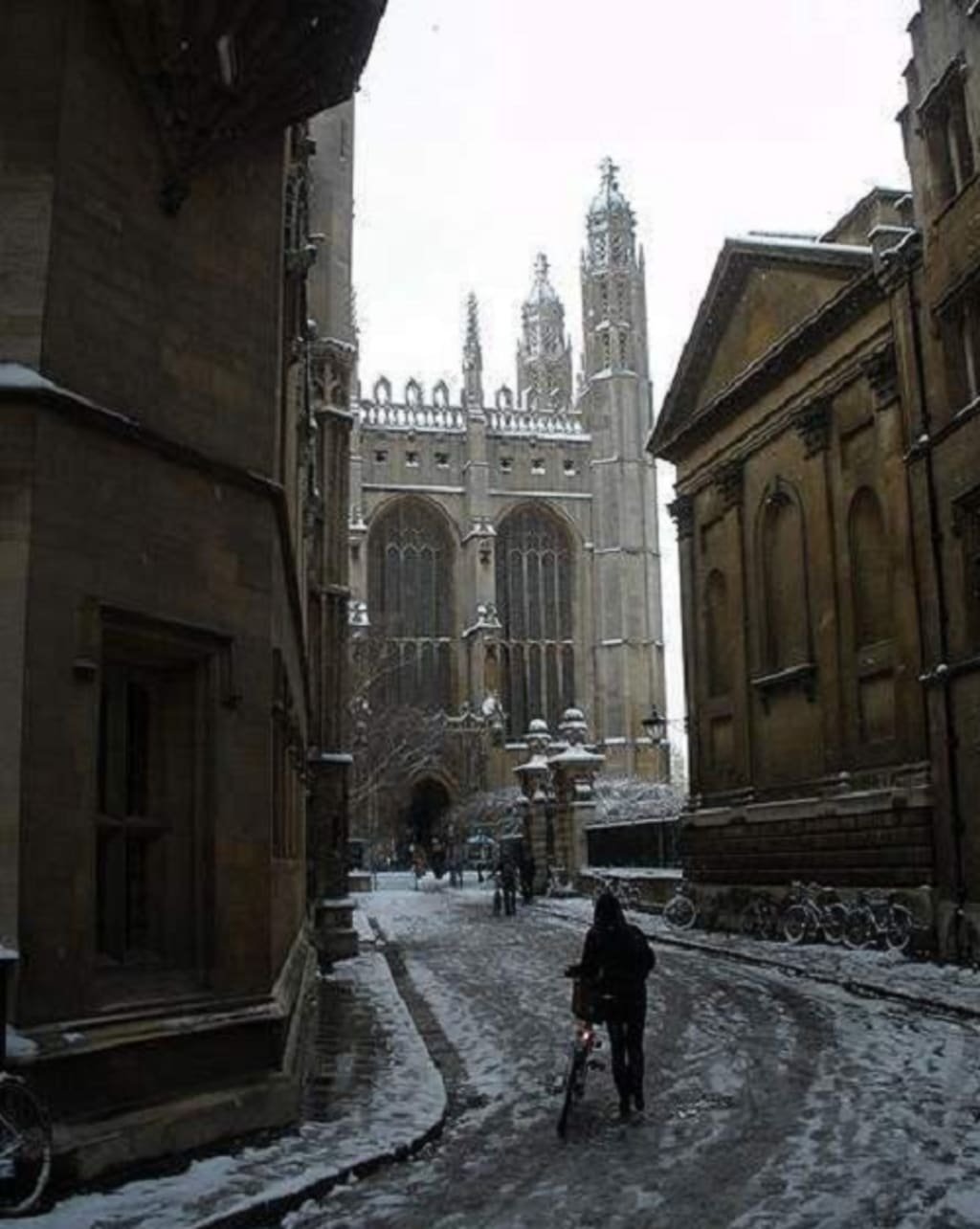
Cambridge is referred to as the City of Perspiring Dreams.
The Varsity
Cambridge University is big, small, old, modern, stupid and clever — all at the same time. Ancient traditions exist alongside innovation; solitary thinkers burn the midnight oil, while others attack each other with pokers. It's that kind of place.
Cambridge is un-sum-up-able (sic), so here are some summaries:
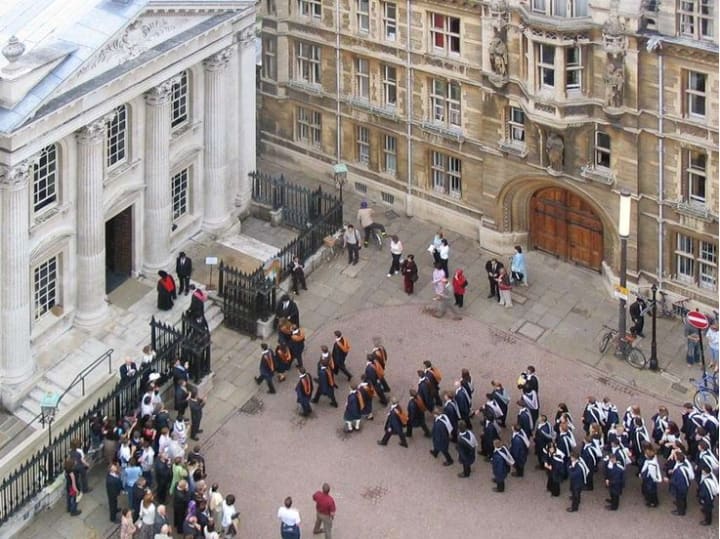
Graduation
Student Life
When I say I spent three years at Cambridge, I really mean 63 weeks or just over a year, for the terms are only ten weeks long, of which there are three per year — Michaelmas, Lent, and Easter.
Astonishingly only eight of those ten weeks are actually spent in the company of the dons (teachers in other words) — the first and last weeks leave the students to their own devices.
Naturally, every minute is spent reading, studying and learning — for those who are so inclined. The rest socialise, drink, take drugs, act, exercise, and generally enjoy themselves, occasionally attending a lecture or two (attendance is not compulsory), and dashing off an essay or two prior to the weekly supervisions (tutorials). These latter are intimate affairs with only one, two or three students present in the rooms of their supervisor. Essays are read, comments are made, discussions ensue and then the hour is up.
Personally, I received not a single mark or grade for any of my essays apart from the occasional tick, and I don't think my experience was unusual in that respect — any grading is done in the exams at the end of the year, and even these do not appear on the degree certificate!
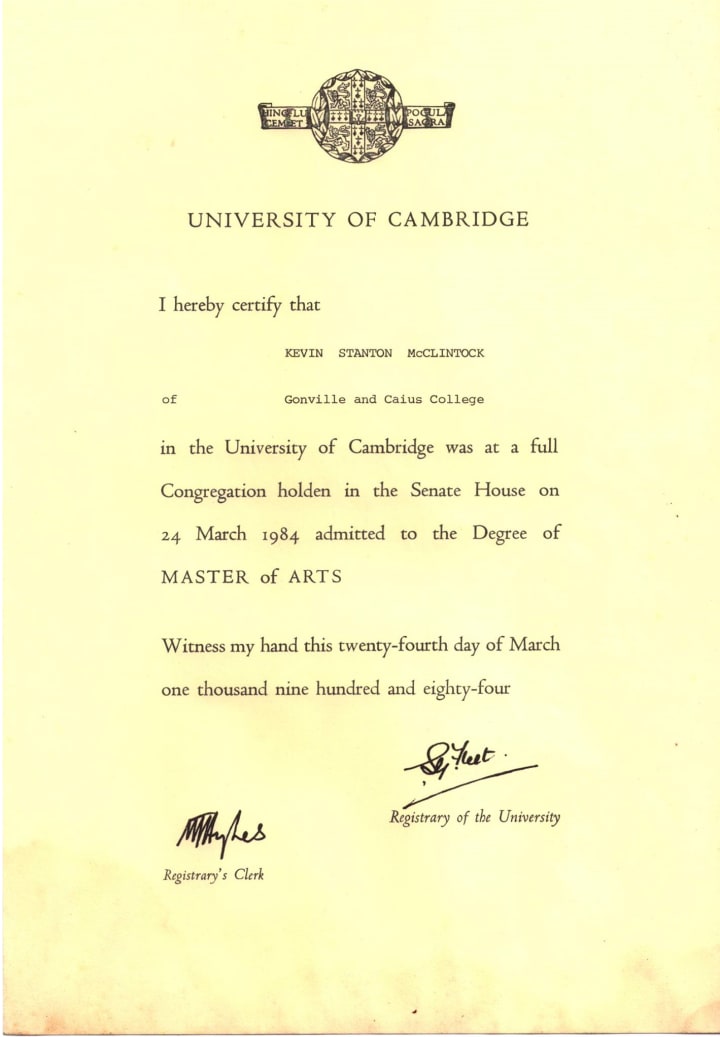
Ticket To Ride
Where exactly is the University?
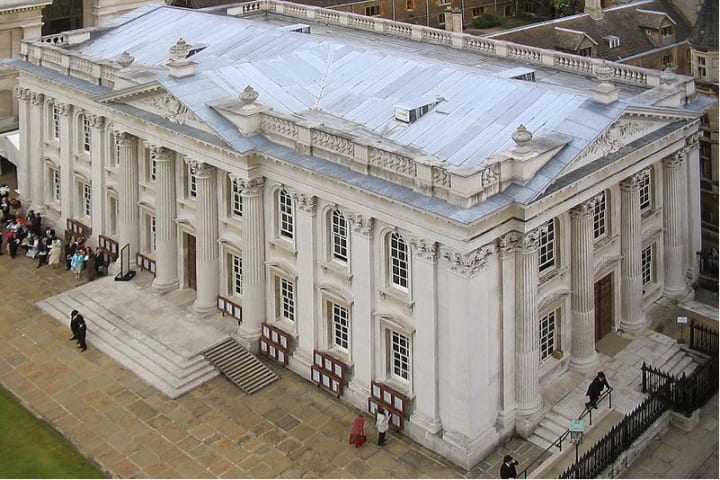
Senate House
Some might answer this question by saying "the Fens"; others, "it's all around you" or "here and there." It is in fact rather amorphous — while the colleges constitute the heart of the university, the University per se is more of an administrative body, organising lectures and exams, awarding degree, and overseeing the Press and the Library. Apart from the latter two, its most prominent, physical emanations are the Senate House and the Old Schools, so let's have a look at them.
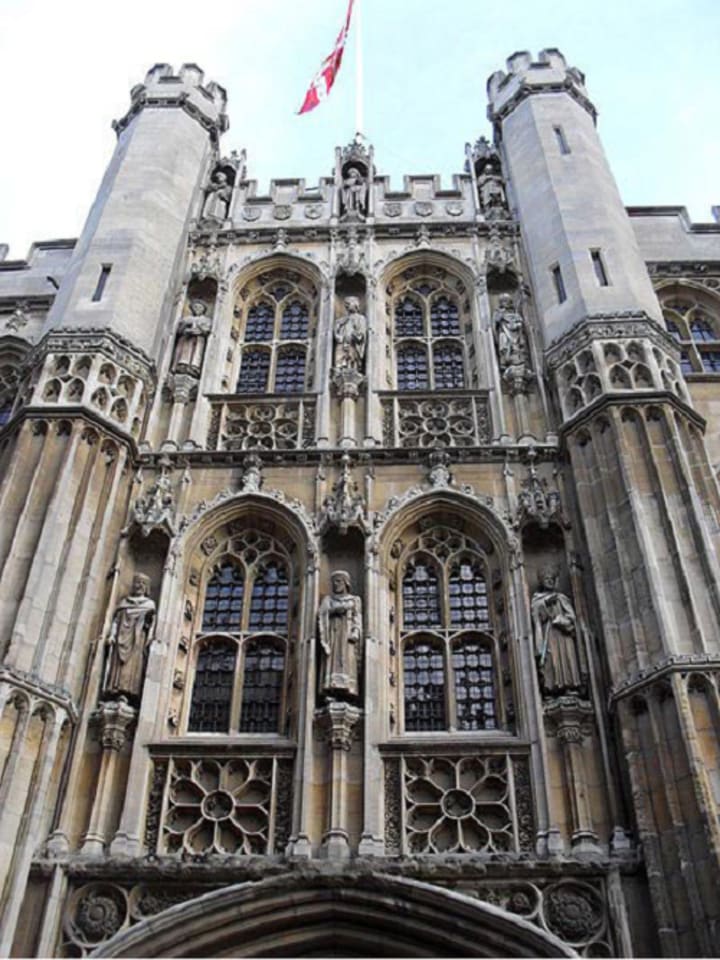
Old Schools
The Senate House is used primarily for ceremonial occasions and is really no more than a rather elegant and airy hall. It's real interest is the human-activity that takes place inside.
Graduation is a particularly esoteric affair — four by four the graduands are led by the college praelector (each graduand holding a finger of his left hand) to receive their admission to the Bachelordom of Arts whilst kneeling before the Vice-Chancellor (or representative), their praying hands held between those of the V-C (or rep.) while he intones a Latin grace.
Well-wishers look on in silence from the balcony.
The Old Schools are the administrative heart of the university, situated behind the Senate House, obscure, dark and fusty-looking. I often passed them on my way to and from Caius thinking of all the ink spilled over the centuries inside its dusty-looking recesses.
The University Library
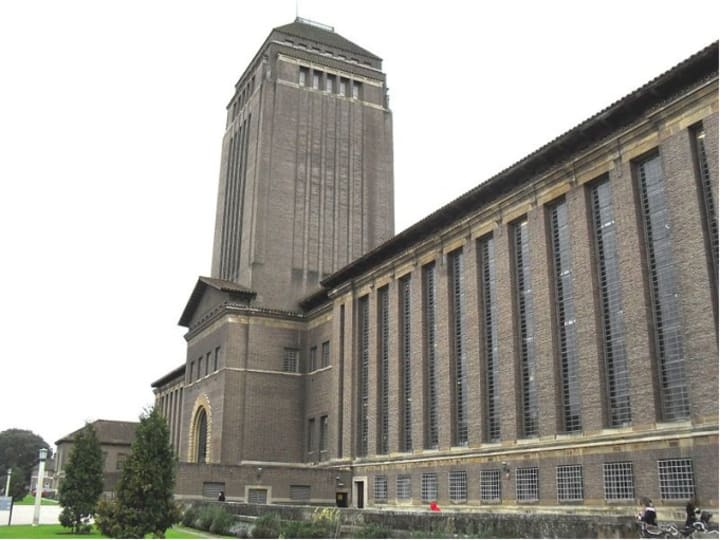
The University Library not only looks daunting, it is daunting. As a copyright library, it is entitled to a free copy of every book, magazine, and newspaper published in the UK, and it generally receives them! As a consequence the library provides its members with an implicit warning: "You will never read every book; you will never know everything; and if you read Socrates, you will know that you will never be sure of anything!"
Nevertheless, the average student enters its portals in order to scrape some knowledge off its columns of books, but unlike most college libraries, it is a rather gloomy, functional place. True, there are tiny lifts that take individual scholars from bookcase to bookcase; the "search-function" is quaintly paper-and-paste (although this may have been revolutionised since I was last there), and there really is anything you could wish to read. From The Beano to Boethius's Consolation of Philosophy (both worth reading by the way), even the most egregious slacker is bound to pick up a scrap of knowledge — or more to the point — get them thinking.
Only, just don't think too much about its architectural merits — frankly, it looks like a crematorium, and in that respect is rather typical of the sort of British architecture of the period. The same misguided designer of the Library built the modern part of Clare College and did far worse than any "Brutalist" to miserablise the mostly lovely landscape.
The College Library
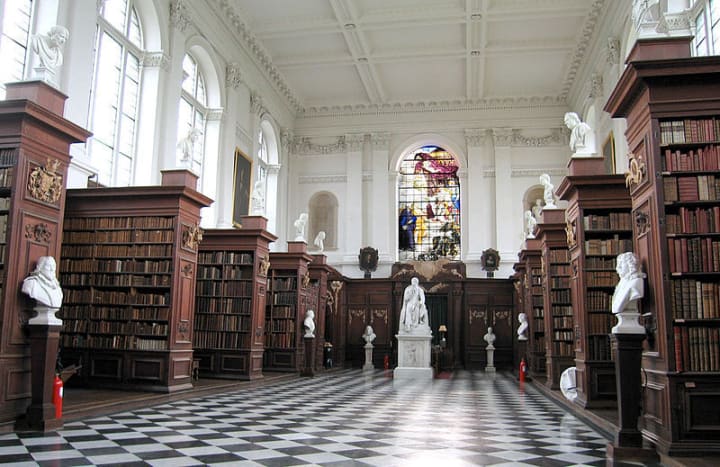
The Wren Library, Trinity
These are far more attractive affairs — the one at Caius College (my college) had three distinct parts to it: the the Inner Library, the Monroe Reading Room and the Upper Reading Room, The Inner Library was by invitation only (or by appointment). It contained a wealth of ancient manuscripts and illuminated texts — probably one of the best collections of medieval works in the world. Although I was studying the literature of the middle ages, I never went in there — mug!
The Monroe Reading Room (the college's former hall) was sepulchral and contained some of the thickest books I have ever seen (it took two hands and mostly idle curiosity to retrieve them from the shelves). This was principally a reference collection — Latin grammars, the history of the college and past exam papers. I was once got a terrible fright when preparing myself for the Eng. Lit. exams and began poring over the Eng. papers, although it didn't take too long for me to realise that I wasn't expected to know how to build a bridge or a steam locomotive in order to dazzle the examiners.
The Upper Reading Room was a light and airy room, containing a selection of books on every subject. The librarian (Mr. J.H. Prynne) was also my Director of Studies, which is probably why the literature section was so well stocked. From a facsimile of Johnson's Dictionary to The Paris Review, it was a delightful place to read, snooze and even mediate in its upholstered leather chairs.
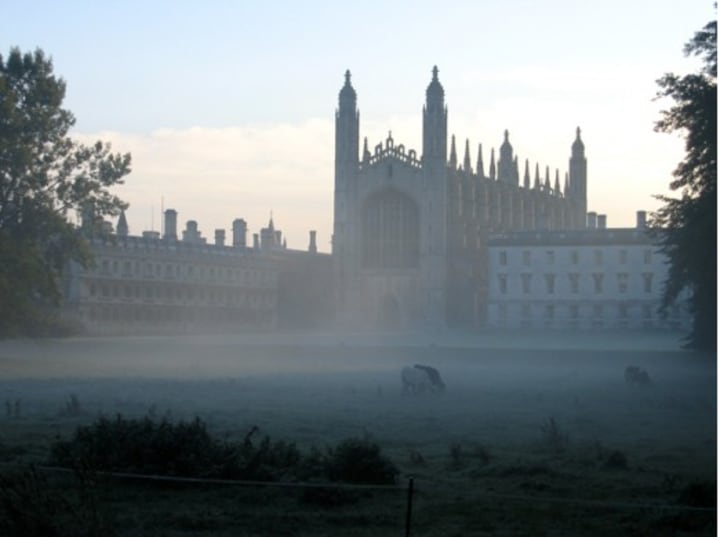
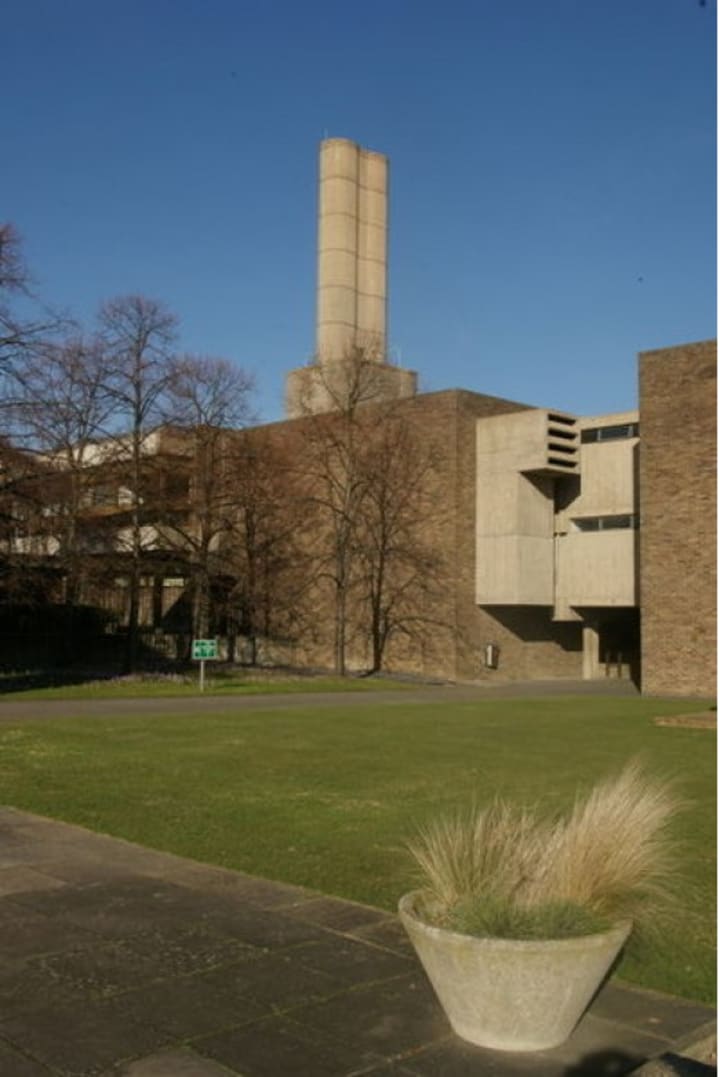
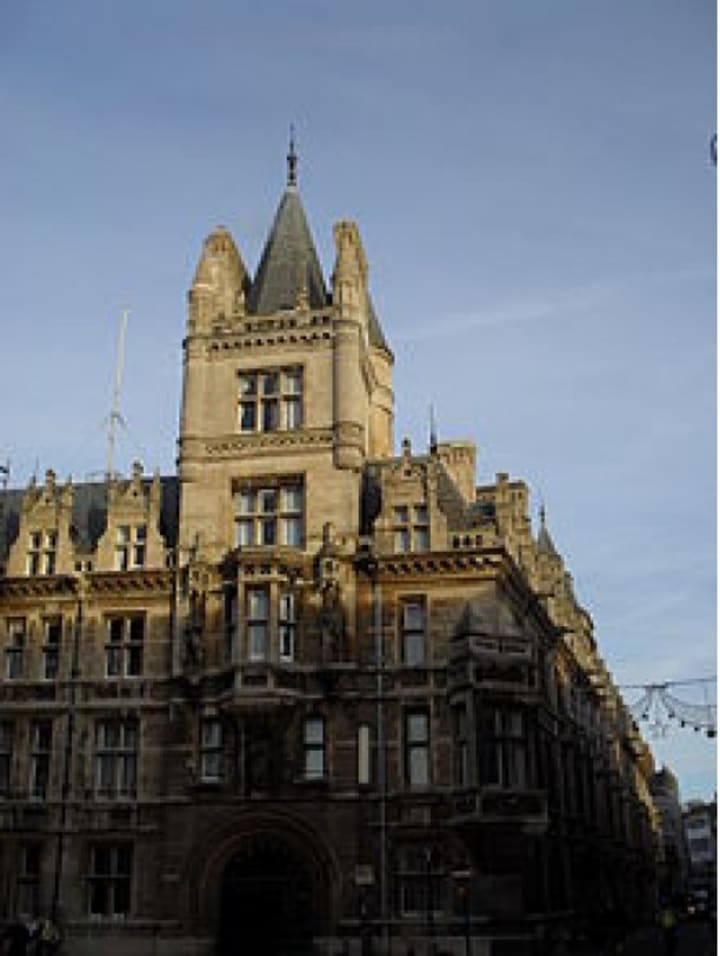
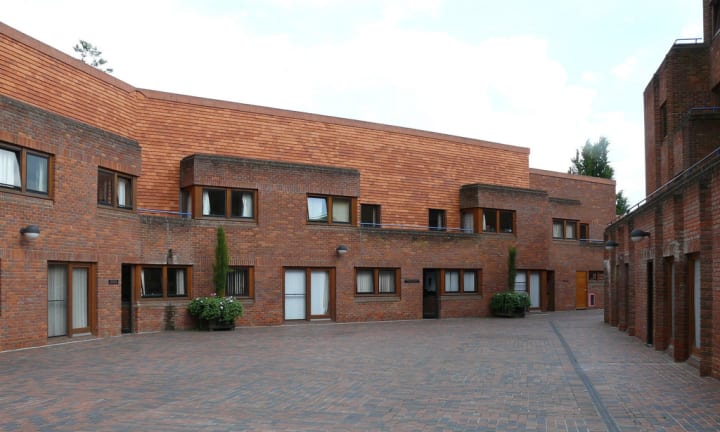
Gonville & Caius College
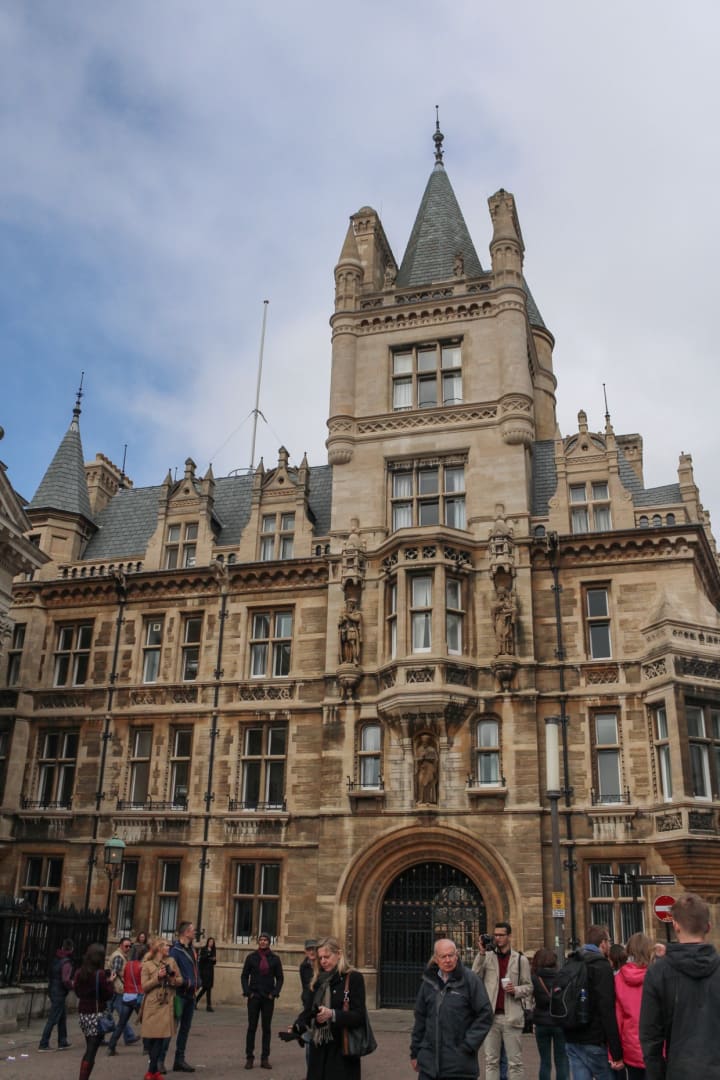
My room was second from the top!
Never heard of Gonville & Caius? Well I hadn't before I received the University prospectus. Indeed I knew nothing about it, which is strange, since its alumni include some of the most remarkable thinkers and scholars of all time. I kid you not.
Check out these luminaries — the eponymous Dr. John Caius (physician to Queen Elisabeth I), Dr. William Harvey (discoverer of the circulation of the blood); Dr's Crick and Watson (DNA discoverers); Professor Joseph Needham (Historian of the History of Chinese Science); and Jeremey Halvard Prynne (noted late-modernist poet).
I could go on — and will: Andrew Gowers (ed. FT), Sir David Frost (needs no introduction), Alistair Campbell (diarist and press officer to Tony Blair) and Prof. Stephen Hawking. There are others I should mention: Dr. John Casey, (co-founder of the Salisbury Group); Dr. Robin Holloway (musician and composer) and Nick Farrell (controversial Mussolini apologist). Only a few of these have I rubbed shoulders with, but that's what it's like at Caius.
Dinner!
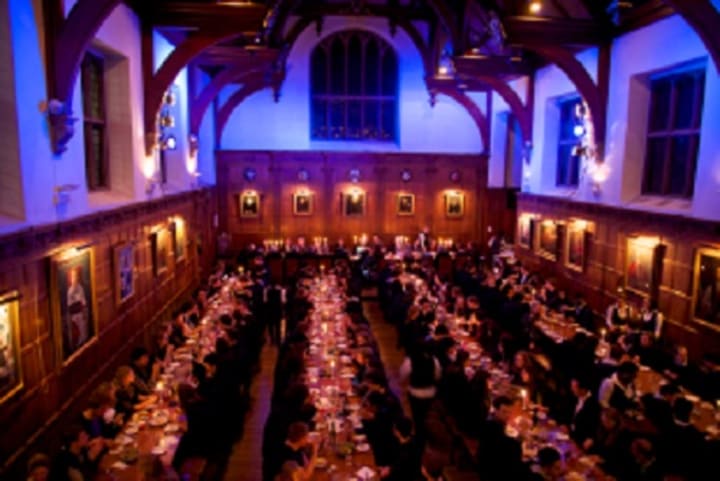
Dinner is not just nutritional sustenance, but intellectual and social as well. Most colleges still insist that their members spend at least some time with each other en masse. This doesn't involve early-morning company sing-songs (although a latin grace is read); nor does it mean gymnastics (other than the brain-training sort). It is an opportunity to eat and talk, and in that respect Hall is one of the wonders of Cambridge life. Where else could one Greek scholar chat about Quantum Physics with an English Scholar from Greece, and have its belly filled at the same time? Admittedly the undergraduate food is often below par, but on the strength of an eventual degree, you may return to Hall (refectory) and dine with the dons — their dinner is usually a bit better.


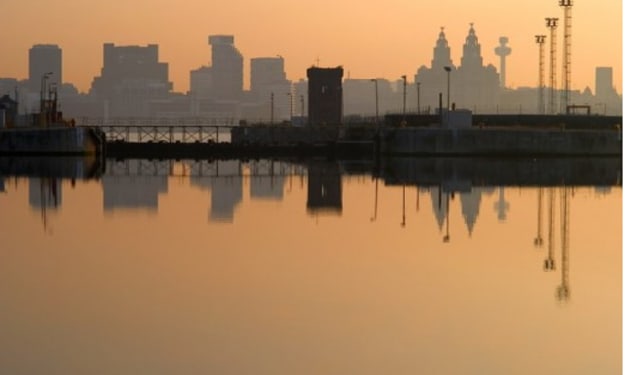



Comments
There are no comments for this story
Be the first to respond and start the conversation.